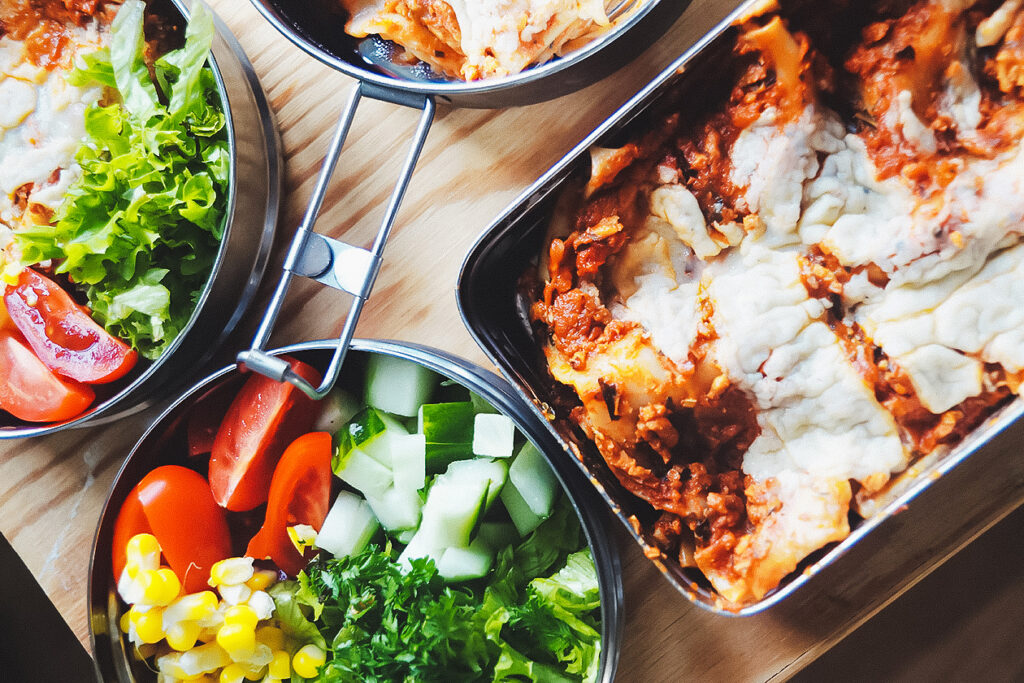Looking to go zero waste but not sure where to start?
In this episode of LIVEKINDLY With Me, Gittemary shares 20 easy, sustainable living tips for beginners. Ready to get started?
20 Zero-Waste Tips for Beginners

Use what you already have
“Don’t go out and buy tons of new stuff because now you want to start living sustainably,” Gittemary says. Instead, she recommends using things you already have at home.
Favor reusable items over disposables
Another easy way to go zero waste is to purchase more products that you can use many times rather than things that you will have to throw away. “This goes for basically every aspect of your life,” she notes. “There are tons of zero-waste swaps that you can make that you can use forever.”
Take a look at your own trash and improve
Being mindful of what you’re throwing away can help improve sustainability at home. “Look at your trash before you throw it away and see if there’s anything that you can perhaps do better the next time,” she says. “That way you can learn from your mistakes rather than just taking everything in.”
Take it one step at a time
Don’t be overwhelmed. “It can be really overwhelming when you start looking into sustainability,” Gittemary says. “Be kind to yourself.” She says going zero waste one room at a time helped her transition into a more sustainable lifestyle easier.

Find out what your local recycling options are
Another good way to be more sustainable is to recycle. Contact your local recycling facility to find out what they are able to recycle.
Find ways to replace high impact foods with low impact foods in your daily life
Gittemary says reducing or refusing meat and dairy and opting for more plant-based foods is key for living more sustainably.
Waste is not waste until you waste it
Try reusing items around your home instead of tossing them. “There are so many reasons to use these products over and over again instead of letting them go to waste,” she notes.
Repair items that break
Instead of buying a new item if something around your home breaks, try repairing it instead.

Practice refusing certain things based on their impact
You can also refuse certain high-impact items when they’re offered to you. These include meat, dairy, and plastic products. “Sometimes it can be very difficult for us to say no to these things because we don’t want to seem impolite,” she says. But, she says, still be empowered to say no.
Implement good anti-food waste habits
Examples of good anti-food waste habits include organizing your fridge and meal prepping, making use of your leftovers. These steps should help you throw away less food.
Before buying something new, try secondhand
Before you buy a new product, check local thrift stores, charity shops, or online second-hand stores like Depop or Facebook Marketplace. “Every time I need new tights, I just find them in thrift shops,” Gittemary says.
Refuse promotional freebies
Gittemary says another great way to be more sustainable is to refuse any promotional samples, freebies, or disposable items that you do not need.

Research sustainable initiatives in your local area
Get involved by looking up sustainable initiatives in your area. These include farmer’s markets, clean-up events, and even clothes swap events. “It can be really good to get involved in some of these initiatives,” she says.
Look at both the physical and the invisible impacts
Another easy step is to be mindful of the physical and invisible impacts of products before you purchase them. “There’s so much impact going on behind the scenes,” she notes. “There’s so much stuff that we as consumers will never get to see.”
Compost
Compost natural materials and food scraps rather than throwing them in landfills. You can then use the compost to fertilize your yard or garden.
Research local and sustainable food systems near you
Learn more about sustainability by watching documentaries or nature series. “If you want to change your priorities and thus change the way that you live and try to live more sustainably it can be a really good idea to follow people with similar views,” she says.

Boycott high pollution brands
Find out which companies are the most polluting and make it a point not to purchase their products.
Get involved politically
“There’s really no way we as consumers can change anything without also making sure that we change things on a higher level,” Gittemary notes. Vote with your dollar and urge your legislators to support sustainable policies.
You don’t need a trash jar
Zero-waste is the goal, but perfection isn’t possible she notes. “That means that we are not always 100 percent successful and that is still okay,” she says.
Regard products as resources
Gittemary says to look at products as a resource rather than basing their value on a monetary price. “It’s so easy to discard things like socks because they cost us basically nothing,” she explains. But these materials still have an impact, she notes.


